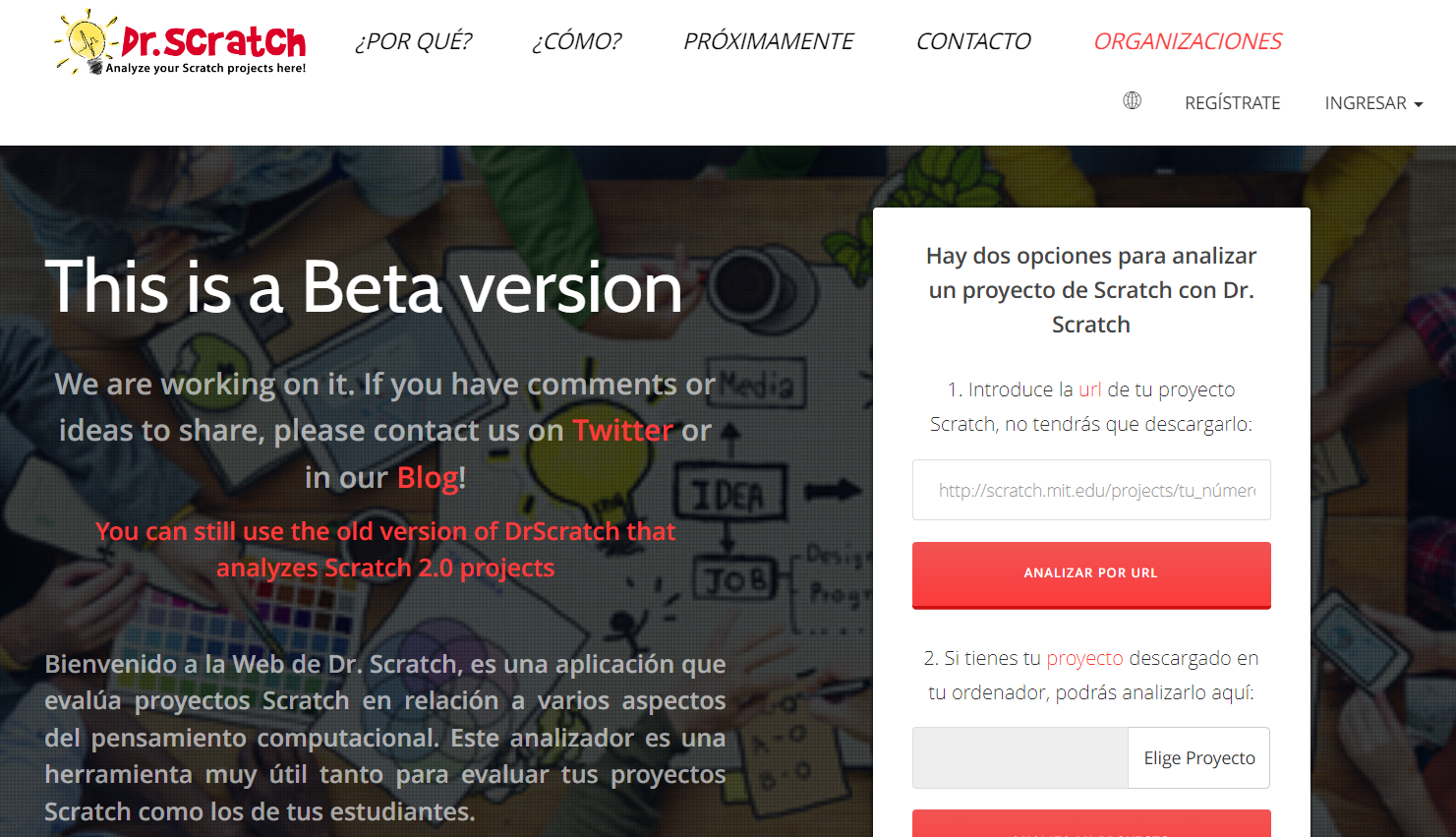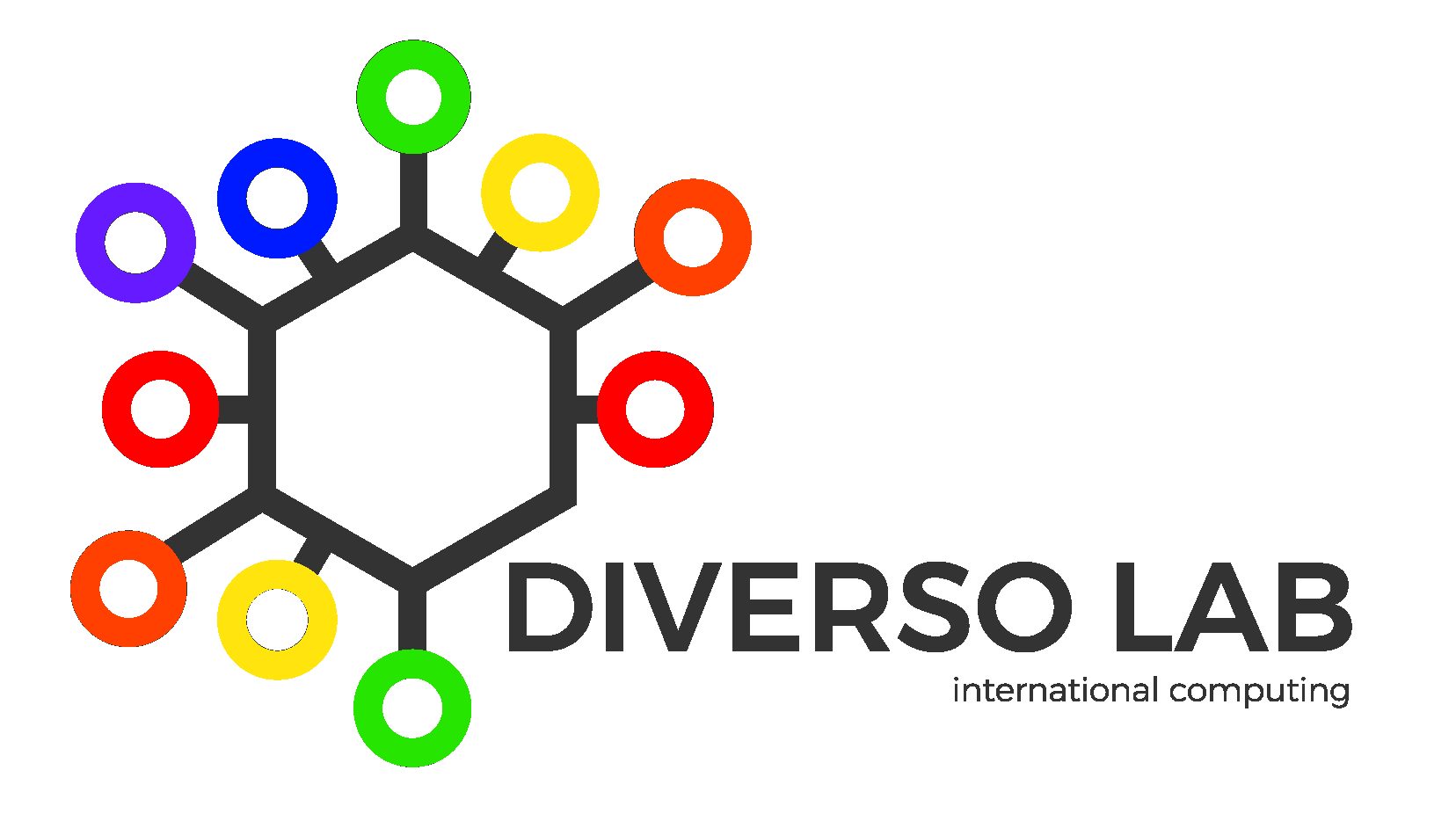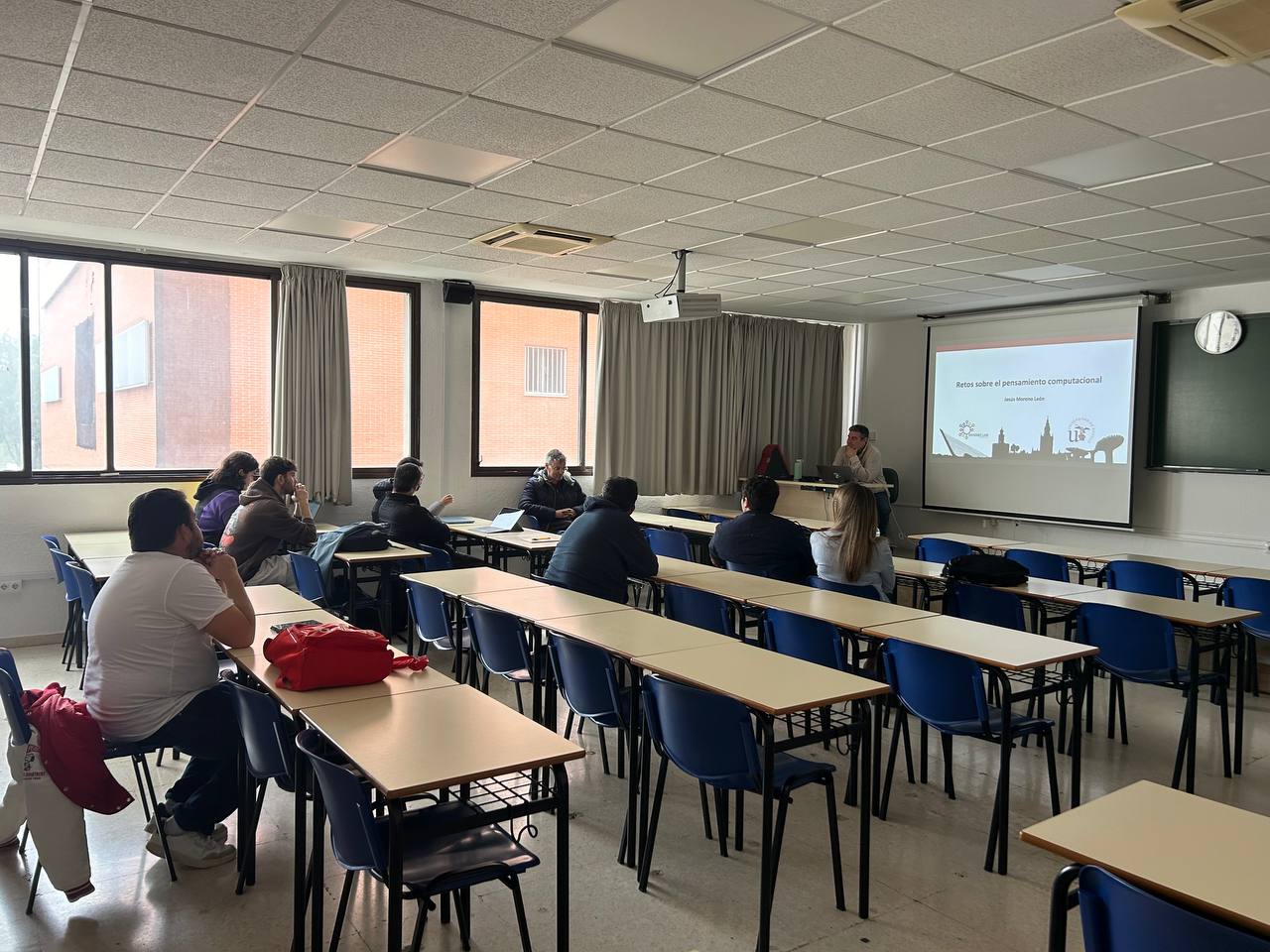Last Thursday, we inaugurated the seminar calendar with a presentation by Jesús Moreno on “Challenges in Computational Thinking“.
The seminar addressed the key findings of recent research on the role of computational thinking in education. Specifically, the issue was explored through three main axes: the assessment of computational thinking skills, their transfer to other domains, and the factors influencing their development.
The presentation highlighted the design and validation of various educational tools and software, such as the Dr. Scratch tool (https://www.drscratch.org), which has become almost a standard in educational and academic communities globally.

Subsequently, the main actions taken in the last decade at the Ministry of Education were reviewed, leading to the inclusion of computational thinking skills in the curriculum of all non-university educational stages.
Results from an emerging research area focusing on the integration of artificial intelligence in education from early stages were also discussed, utilizing innovative tools like LearningML (https://web.learningml.org). A live demonstration was conducted to build an image classification model using neural networks and a predictive model based on decision trees. This facilitated a practical discussion on the didactic possibilities of such solutions. Additionally, recently created resources were presented to enable young students to develop their own generative artificial intelligence models, aiding in a tangible understanding of their possibilities, limitations, and risks (https://programamos.es/curso-inteligencia-artificial-y-educacion-como-funcionan-los-sistemas-de-ia-generativa).


The session concluded with an open discussion on present and future challenges for the advancement of computational thinking. Particularly, there was an exchange of ideas on possible future research connecting computational thinking with the lines of work being developed by the DiversoLab group, such as design thinking or “low code”, among others.
You can check the presentation here.

